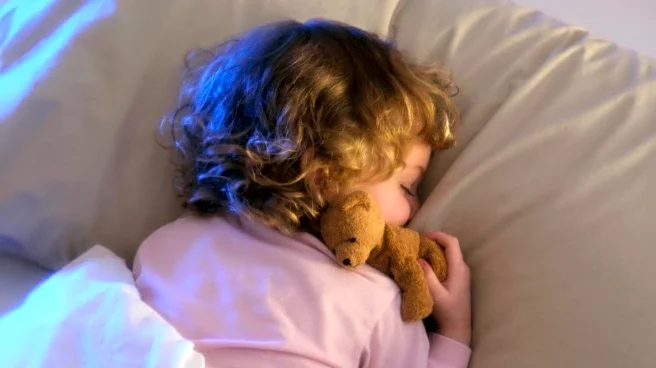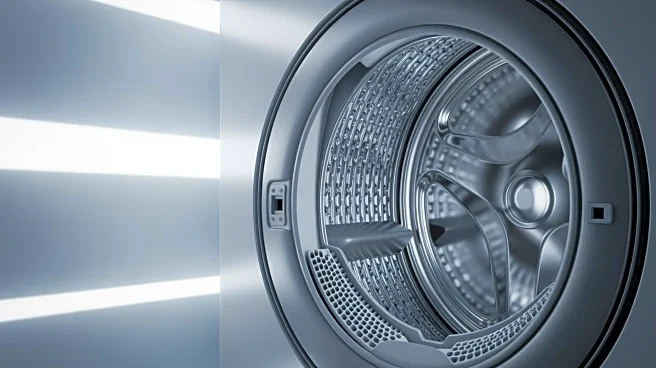What is the story about?
What's Happening?
Recent studies have highlighted the impact of blue light exposure from screens on circadian rhythms and sleep quality. Blue light, emitted by electronic devices, inhibits melatonin production, a hormone crucial for sleep regulation. This disruption can lead to sleep issues, particularly for individuals who use screens late at night. Blue-light glasses, designed to filter out these wavelengths, have gained popularity as a potential solution. However, the American Academy of Ophthalmology states that there is no scientific evidence supporting the effectiveness of these glasses in reducing digital eye strain or preventing eye damage. Despite this, blue light exposure remains a concern due to its effects on sleep patterns and overall mental well-being.
Why It's Important?
The findings underscore the importance of managing blue light exposure to maintain healthy sleep patterns and mental health. As screen time increases, particularly in the evening, individuals may experience disrupted sleep, leading to fatigue and decreased cognitive function. This has broader implications for public health, as poor sleep is linked to various health issues, including obesity, depression, and cardiovascular disease. The research suggests that while blue-light glasses may not prevent eye strain, they could help mitigate sleep disturbances caused by prolonged screen exposure.
What's Next?
Individuals are encouraged to adopt strategies to reduce blue light exposure before bedtime, such as using blue-light glasses, dimming screens, or engaging in activities that do not involve electronic devices. Further research may explore alternative methods to protect circadian rhythms and improve sleep quality, potentially influencing public health recommendations and consumer habits.
Beyond the Headlines
The discussion around blue light and sleep highlights the evolving understanding of how modern technology affects health. As digital devices become more integrated into daily life, the need for effective solutions to mitigate their impact on sleep and mental health becomes increasingly critical.















